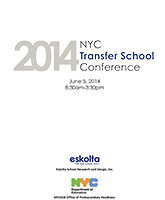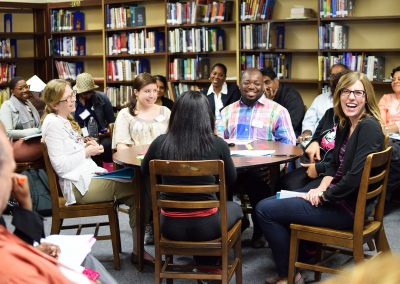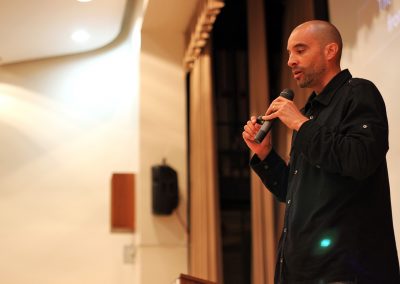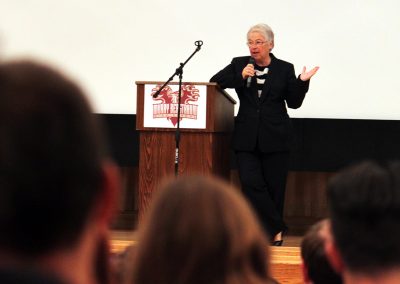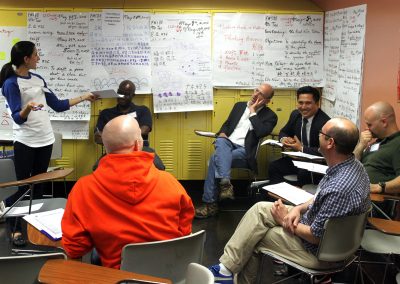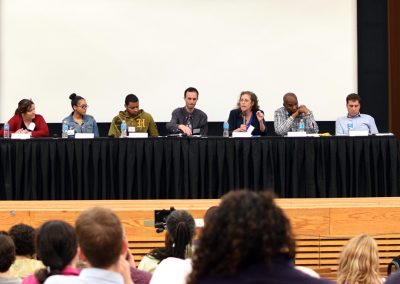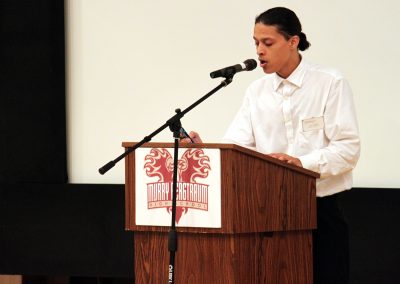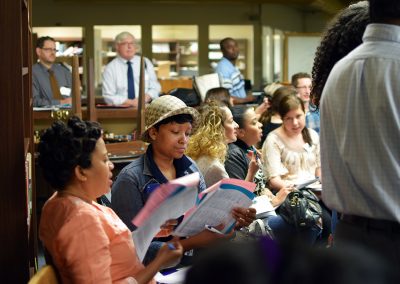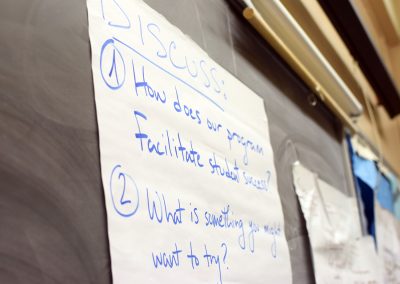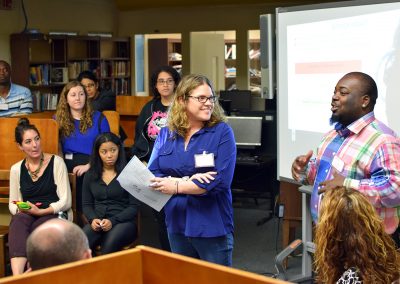2014 Transfer School Conference
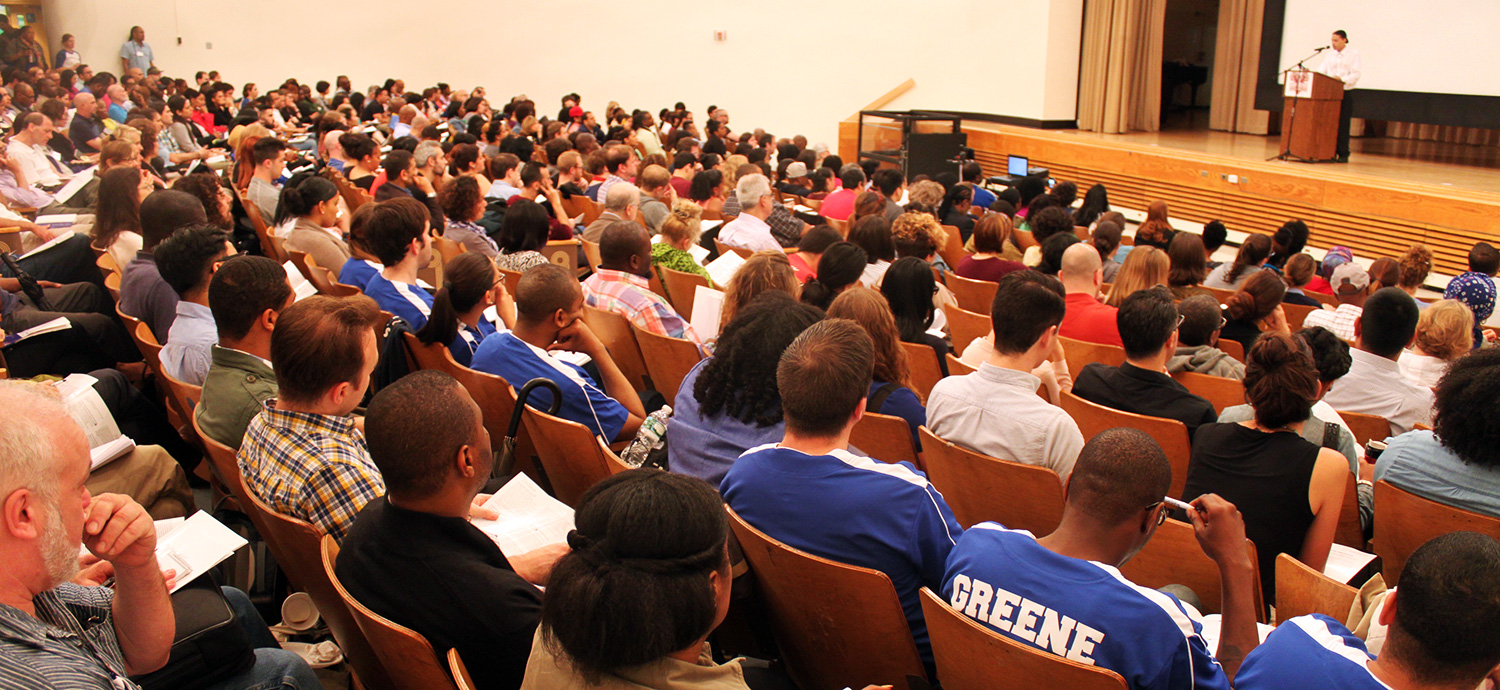
The 2014 Transfer School Conference was our biggest to date, with 825 participants from 37 schools in attendance. The day kicked off with words from Evin Orfila, a student at Liberation Diploma Plus High School in Brooklyn. Orfila highlighted the struggles his generation faces and those in his own life, praising the role that transfer schools play to help students cope with those struggles: “Liberation never will be just a school to any of the students that attend. Liberation is and forever will be a home for those that are lost or spit through a system designed to fail us. That is what a transfer school can be for us.” Download full text or listen to the speech below:
Rounding out the opening convocation, NYC Schools Chancellor Carmen Fariña addressed the group, expressing her admiration for the work transfer schools do and highlighting the high standards schools have put in place to help students become productive citizens, ready for work and college. Fariña noted that former transfer school students return to volunteer or for help because transfer schools have created a supportive environment: “You have made not just a difference academically in kids’ lives but you’ve made a difference in every aspect of their lives and in their families’ lives. And as I talk to kids in transfer schools, what’s very clear to me is that for many of them, you are their family. You have given them life and you have given them hope.”
This year’s conference offered more than 50 workshops spanning a broad range of topics. From their fellow transfer school educators, attendees learned about strategies being used on the ground in sessions such as Let’s Play! How to Create a School Community Through Theatrical Practices and Global Traveler: Reframing the Global History and Geography Curriculum. Additionally, this year a number of workshops were presented by organizations that work closely with the transfer school population. Two such organizations, Jobs for the Future and Facing History and Ourselves, shared their work and resources in sessions titled “Best Bet” Postsecondary Programs of Study: Connecting Graduates to Pathways That Pay Off and Promoting Civic Agency and Student Voice in Humanities Classrooms.
Two panel discussions were another new feature this year. The first, focusing on building positive school cultures that promote academic behaviors, featured youth developer and public theologian Dr. Rev. Alfonso Wyatt, education researchers Dr. Michelle Fine and Dr. Joshua Aronson, transfer school principal Jean McTavish, and graduating high school seniors Erica Hernandez and Bob Rivera. The group touched on issues of social justice, communication between teachers and students, and school accountability in light of the tension between providing a rigorous academic experience and supporting students’ socio-emotional development. The second panel centered on college readiness and featured voices from both sides of the transition from transfer school to college. College professionals Dr. Nicola Blake, Richard Rivera, and Eric Hofmann and transfer school graduates Miguel Fores, Arienna Daniels, and Rahking Williams exchanged ideas about the factors that help transfer school graduates succeed in college and the kinds of practices in transfer schools that have helped and can help them be prepared.
Finally, Dr. Jeff Duncan-Andrade, professor of Raza Studies at San Francisco State University and a high school teacher in East Oakland, California, closed the day with a moving talk on critical pedagogy in urban settings in which he shared his own experiences and strategies for effective teaching in schools serving poor and working-class children.
Dr. Duncan-Andrade’s words echoed sentiments expressed by many throughout the day, such as those eloquently stated by Dr. Alfonso Wyatt, who affirmed that the compassion, love, and hard work of transfer school educators help students “feel that they are empowered to make their own decisions, that they can stand, and that there are some people that will stand with them.” Through this tireless work, he reminded the audience, “we will not only embrace the champion, we will create a transformative movement that young people will come back years later as your volunteers, as your staff members, as the light to prove that this works.”

